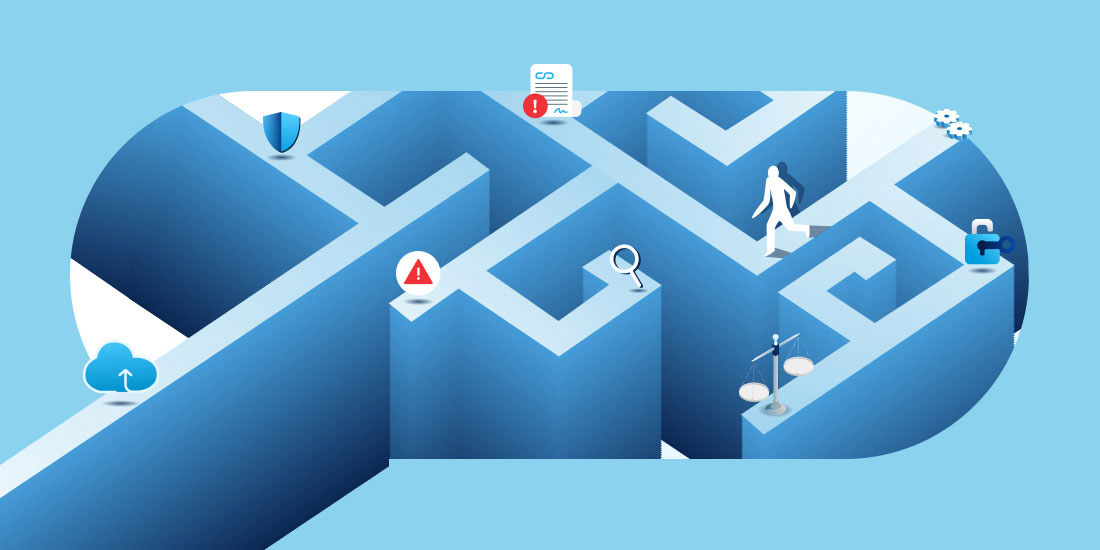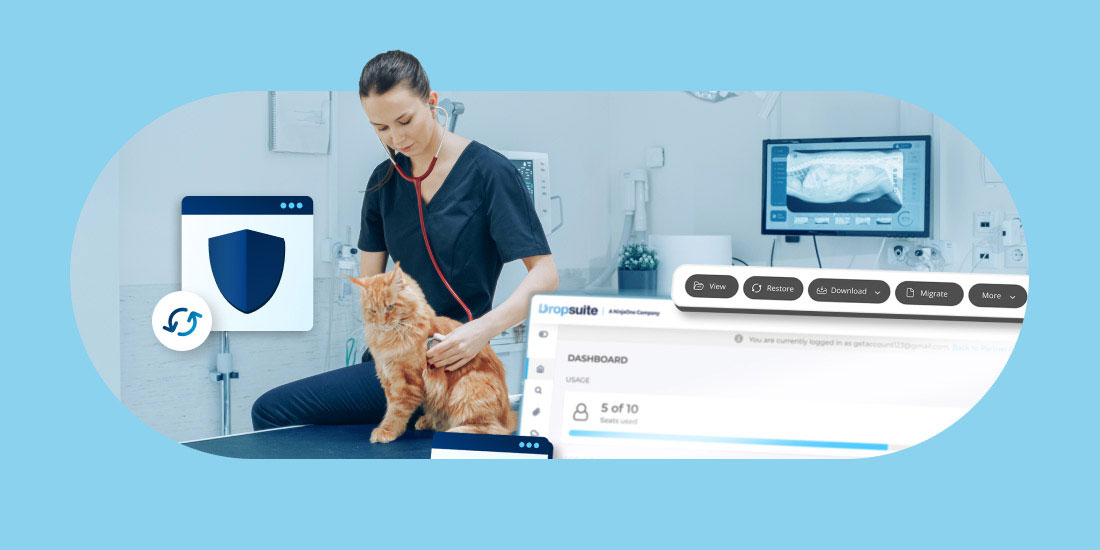Estimated Reading Time: 4 Minutes
The pandemic accelerated the digitization trend in healthcare. Over half of small and large healthcare facilities now store at least 90% of patient data digitally, including patient billing information and medical histories.
The healthcare sector continues to shift its information management systems to cloud-based technologies. However, these cloud-based platforms add a new layer of challenges in terms of compliance and security. Ransomware threats, accidental deletions, compliance errors–if any of these issues arise, healthcare professionals run afoul of laws and regulations governing data management in healthcare. To respond, healthcare organizations should deploy a robust email backup and archiving solution–such a tool provides an added layer of protection against any external threat attack or an internal error.
Read on to explore the current digital landscape in healthcare and the challenges healthcare leaders face today.
Cyberattacks in Healthcare: A Grim Picture
Cybersecurity is a significant concern in the healthcare industry. As hospitals move to digital file storage as the norm, electronic patient information becomes a massive target for bad actors.
In 2021, nearly 45 million records were exposed or stolen from 686 major healthcare cyber attacks. These stolen digital healthcare records constitute 95% of all identity theft incidents.
Case in point: the HIPAA Journal revealed that in March 2022 alone, 43 healthcare data breaches had been reported to the U.S. Department of Health and Human Services Office for Civil Rights. These breaches alone caused over three-million digital healthcare records to be exposed, stolen, or impermissibly disclosed.
A Healthcare Information and Management Systems Society survey further underscores the current landscape in health information safety and security:
- Ransomware and phishing attacks remain the top digital threats in the healthcare industry in 2021, representing 17% and 45%, respectively.
- 71% found that general email phishing was the most significant security incident.
- 32% of the most significant security incidents they encountered had a high severity.
- 22% found that a data breach or data leakage was the most significant impact of a cybersecurity attack.
- The primary targets of these attacks are financial and employee information and electronic patient information.
- Only 50% have implemented full data encryption for data in transit, and 38% have full encryption for data at rest.
- Only 28% have implemented a solution for data loss prevention.
Regulations around Health Information Safety and Security
Various regulations intend to provide health information safety and security to patients’ and hospitals’ data. These include the following:
Health Insurance Portability and Accountability Act (HIPAA).
This US federal law was formed to ensure that an individual’s health information is adequately protected while allowing the flow of health information needed. The law covers healthcare providers, health plans, clearinghouses, and business associates who handle individuals’ health information.
Moreover, the HIPAA Security Rule requires these organizations to “ensure confidentiality, integrity, and availability of all electronically protected health information.” HIPAA also means that all healthcare staff must know how to comply with the legislation.
Failing to provide health information safety and security means fines for healthcare organizations. In 2022, HIPAA imposed penalties on four institutions with alleged violations. These cost these organizations heavily in financial penalties, ranging from $28,000 to about $63,000.
Health Information Technology for Economic and Clinical Health Act (HITECH).
This law encourages healthcare providers to adopt digital healthcare records and improve privacy and security protections for healthcare data. The establishment of HITECH also presented stricter penalties for failing to comply with HIPAA rules. The law has four corresponding tiers of penalty amounts which significantly increase for each violation. Any healthcare organization violating these laws receives a maximum penalty of $1.5M for all offenses under the same provision.
Patient Protection and Affordable Care Act (ACA).
This law includes the development of national standards for the management of electronic patient information collected, as well as the interoperability and security systems for data management. In 2022, more than 14.5 million Americans signed up for the ACA health insurance, bringing the total insured citizens under this law to 18.7 million adult Americans across 39 states.
General Data Protection Regulation (GDPR).
In the European Union, the GDPR includes clauses that protect personal health data. GDPR also gives a person the “right to be forgotten”–i.e., the right of a person to ask for the removal of their private information from directories and Internet searches under certain circumstances. Healthcare organizations also need a data protection officer who is an expert in data protection laws and can implement technical and organizational measures to ensure information security. The law covers the sharing of data to third-party organizations to provide medical services through emails and other means of electronic data transfer.
Backup and Archiving: A Tool for Healthcare Data Protection
Backup and archiving solutions play a significant role in providing a layer of protection for healthcare organizations’ electronic patient information and other internal data.
For example, if a ransomware attacker steals data, healthcare companies would not need to pay ransom to get their data back since they would have secured backups and archives. Also, backup and archiving significantly reduces recovery time and costs from malware and ransomware attacks. The same is true for internal threats like accidental deletion or insiders.
Dropsuite specializes in keeping business-critical data safe, secure, and protected for healthcare organizations. These companies can now efficiently backup, store, preserve and, if necessary, quickly restore data at a moment’s notice across a range of cloud-based ecosystems – Microsoft 365, Google Workspace, IMAP-POP, and Hosted Exchange – through Dropsuite’s cloud-based solution.
Moreover, healthcare businesses garner continuity and compliance through many easy-to-use, secure, and scalable backup and recovery tools. Dropsuite allows IT teams in health institutions to set retention rates that are as long as necessary to legally maintain patient data and compliance.
In the case of lawsuits, investigations, and discovery processes, IT teams in healthcare institutions can put legal or time-based holds in any platform where pertinent healthcare data is stored.
Dropsuite further addresses the challenges in the healthcare industry through:
- Data loss protection – Dropsuite’s automated and secure backup solutions protect businesses’ critical data, such as website files and databases, M365 data, and email. Dropsuite secures healthcare organizations’ data by saving and encrypting them in the cloud, allowing for data recovery if needed.
- Support for regulatory compliance – Dropsuite considers the healthcare sector’s need to comply with regulations continuously. Our data backup and archiving solution ensure that healthcare organizations are HIPAA and GDPR-compliant across email, website, and related data backup, archiving, and recovery.
- Journal archiving – Dropsuite empowers administrators and auditors to facilitate eDiscovery and other compliance-quality archiving activities. Journaling is a tamper-proof caliber of email archiving that meets the rigorous standards of regulated authorities and the courts.
Talk to our experts here to learn more about how Dropsuite secures data for the healthcare industry.






